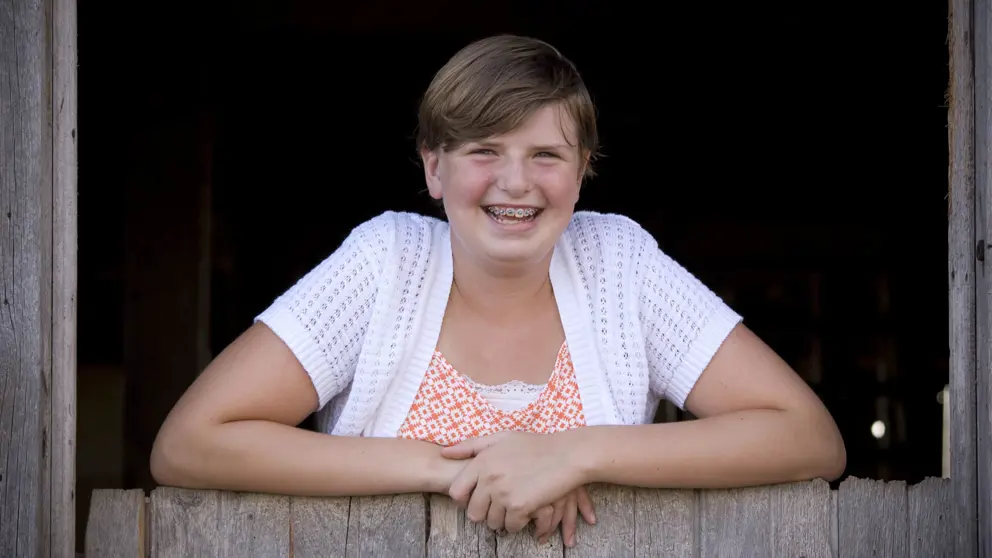I live in the small town of Glencoe, in southwestern Ontario. When I was six my mom noticed that something wasn’t quite right. We went to see a lot of doctors.
They found that my aorta was enlarged (that’s the main blood vessel that comes from the heart). After many tests they diagnosed me with having aortic root dilation and a mitral valve prolapse. More tests are being done to see if I have Marfan syndrome. It all means that my heart doesn’t work that well.
I guess you could say that it has been a rocky road, but compared to most heart problems, it really could be much worse (for example, a hole in the heart or cancer).
Now don’t get me wrong, my aorta could separate at any time. That’s how my dad died.
I was two when his aorta separated and the blood filled the sac around his heart, causing him to have a massive heart attack. He died quickly. Sometimes I feel that he died so that they could start testing me, as the condition is genetic.
With this condition, I am limited in the physical activity I am allowed to do. Jump Rope for Heart is one of the things I am able to participate in and quite enjoy. My family always donates to the Heart and Stroke Foundation in hopes that one day they can find a solution to all heart problems.
I think that we found a quick solution to fix it, but it’s like putting a bandage on a bigger problem. I am on an emergency wait list at Sick Kids Hospital in Toronto, for when my aorta starts to separate. They can put in a patch if it does separate, but for now I am on beta blockers to slow my heart rate down so my aorta doesn’t stretch farther.
I have hopes and dreams of becoming a teacher, but for now we take one day at a time.
I am truly blessed to wake up every day and see my wonderful family!
We’re happy to bring you Natasha’s story, and even happier that since she wrote it for us, she received good news from her cardiologist. Her aorta has not changed since she started beta blockers, which means she is now allowed to do more physical activity, including running and volleyball. To celebrate the good news, Natasha tried out for her school’s volleyball team. She made the cut!
Natasha is still taking beta blockers as a precaution, and her family and doctors will monitor her closely as she introduces more physical activity into her routine.

